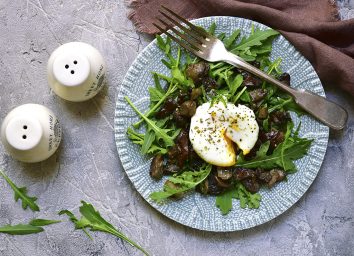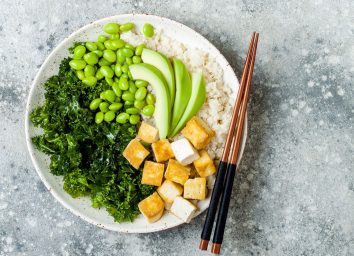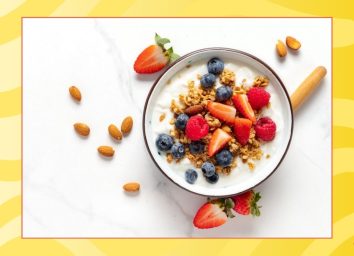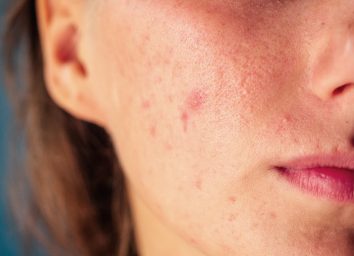13 Terrible Ways You’re Ruining Your Coffee
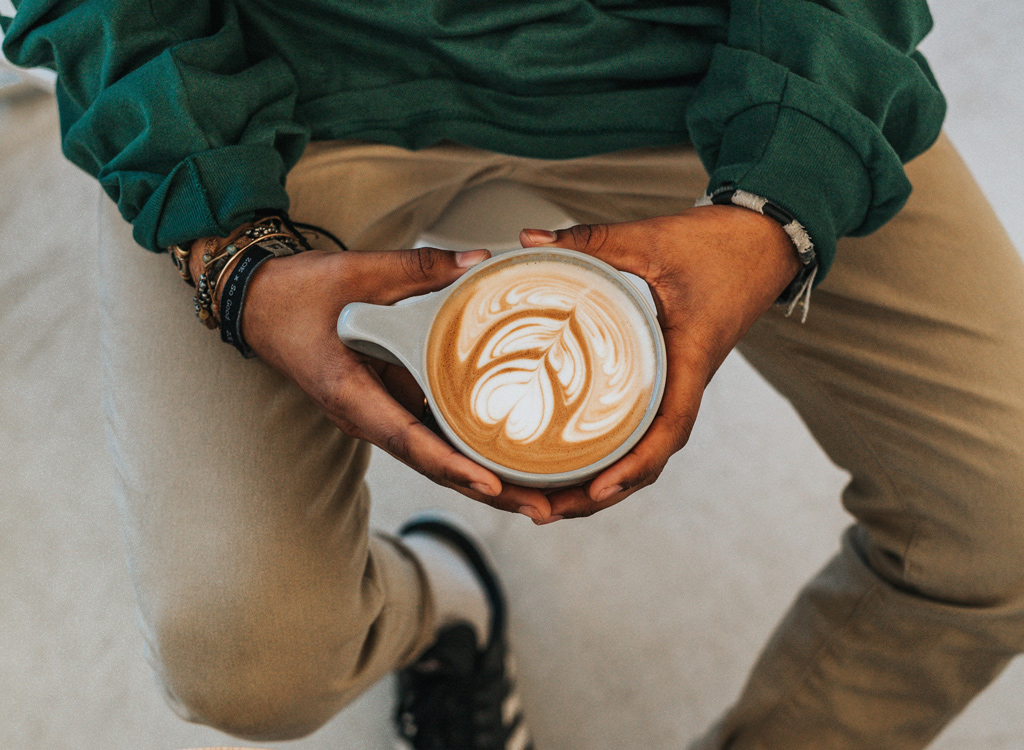
While that first cup of coffee in the morning may be the only thing that gets you out of bed, sometimes, it’s the reason you should actually sleep in and skip it. Especially if you’re making any of these mistakes that are ruining your cup of healthy coffee!
Coffee is a natural source of antioxidants and has been linked to countless health benefits—such as extending your life, lowering your risk of heart disease, and helping you cruise through that 3 p.m. meeting. But if you’re spiking your cup with the wrong stuff or sipping too much throughout the day, you may be doing your body a disservice. Read on to find out exactly how you’re ruining your Joe and avoid these mistakes next time you hit up your local cafe or brew a mug at home. And for more healthy eating tips, check out our list of 21 Best Healthy Cooking Hacks of All Time.
You’re adding sugar.
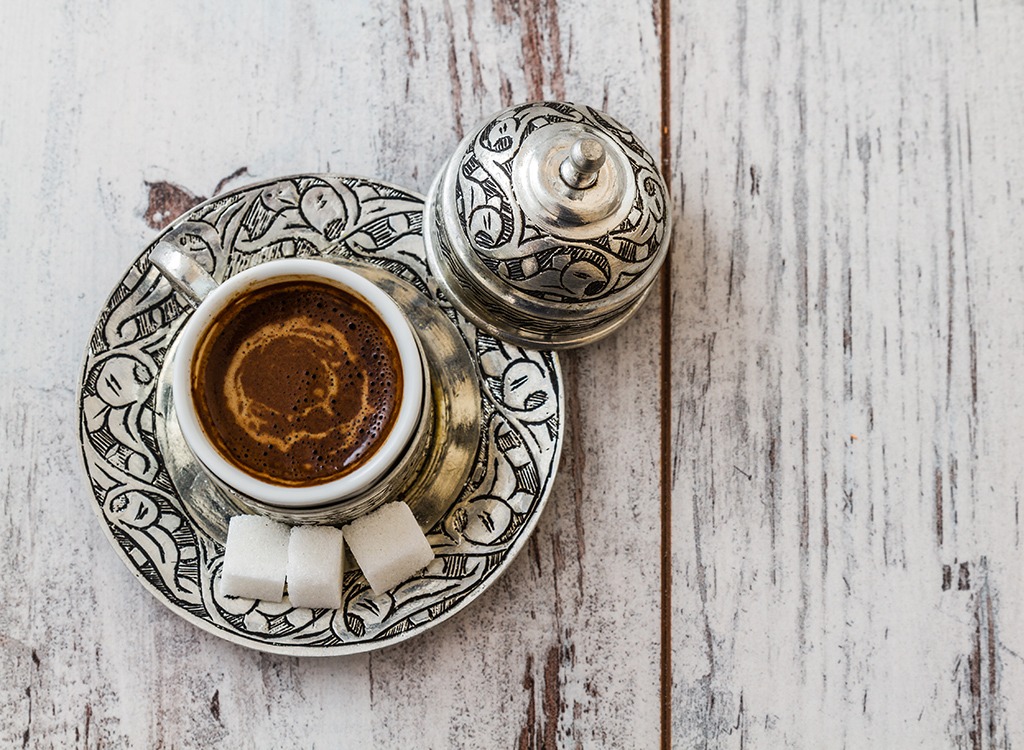
Just one tiny packet of Domino contains four grams of the sweet stuff—that’s almost 20 percent of your daily recommended amount of sugar! If you’re adding one packet to your cup and drinking two cups a day, you can add over three pounds to your frame in the course of a year. Plus, refined sugar has been linked to a plethora of ailments such as sarcopenia, or age-related loss of muscle mass, as well as diabetes, obesity, and heart disease.
You’re pouring in artificial sweetener.
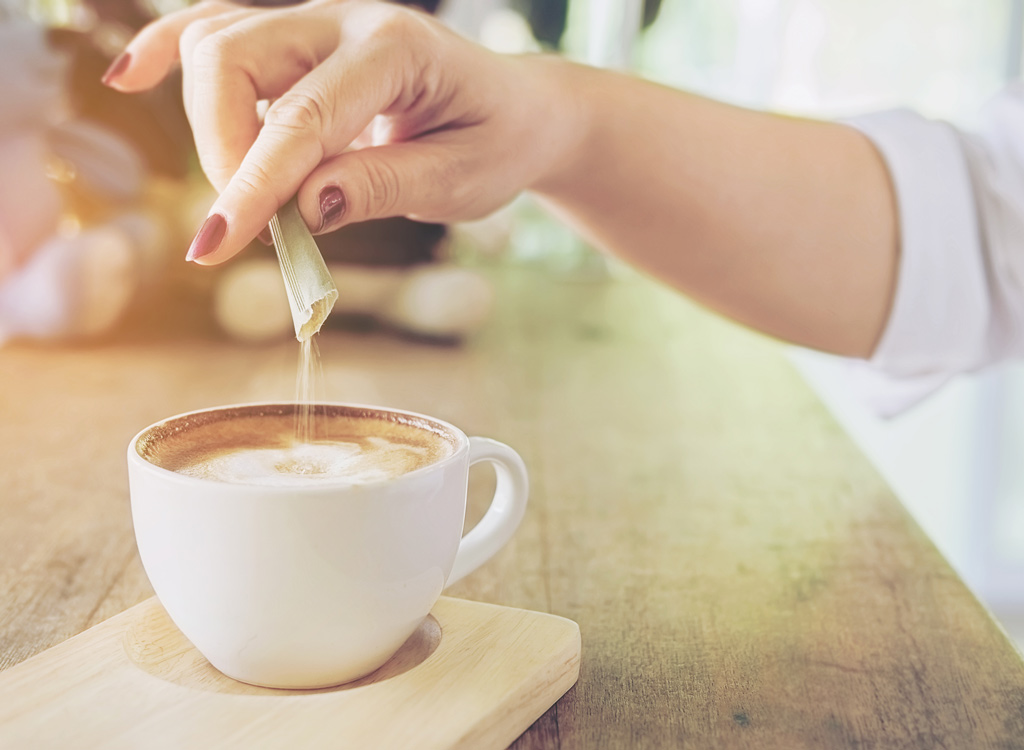
Just because artificial sugar is free of actual sugar (and the pesky calories that come along with it), that doesn’t mean you should be sprinkling it into your cuppa. One longitudinal study of 3,682 participants found that those who drank artificially sweetened drinks had a 47 percent higher increase in BMI than those who didn’t add the fake stuff. What’s more, research shows that indulging in artificial sweeteners tricks the brain’s reward system into thinking it received calories, ultimately leading to more sugar cravings. Here’s What Happens to Your Body When You Eat Artificial Sweeteners.
You forget to use spices.
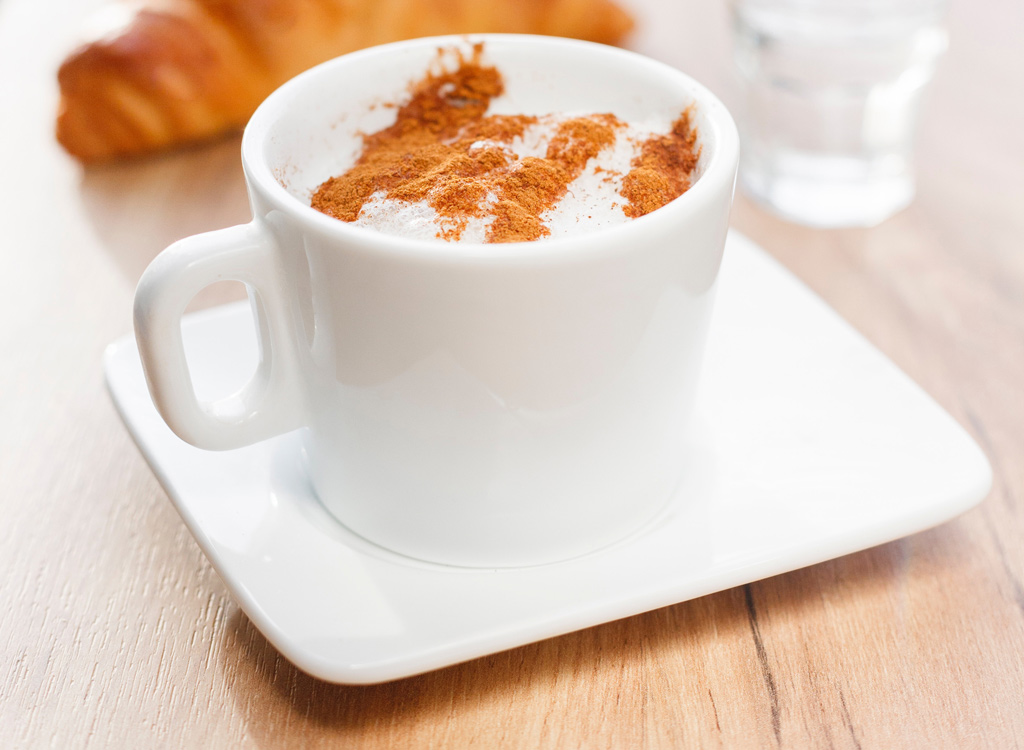
If you’re married to stirring sugar or artificial sweetener into your java, we may have the solution to help you initiate the divorce. Instead of sprinkling in the sweet stuff, cut the bitterness of your cup of coffee with zero-calorie spices. We like warm spices such as nutmeg, cloves, and cinnamon—which has been proven to stabilize your blood sugar. For a more flavorful sip that won’t cost you a trim waistline, try Simply Organic’s Pre-Brew Chai Coffee Spice. All you have to do is add ground coffee to your French press or filter, toss in a tablespoon of the aromatic blend, and brew. Simply Organic’s pre-brew spices also come in an Awaken blend, Cinnamon, and Pumpkin Spice for all your morning cravings. Here are 7 Things You Should Never Add to Your Coffee.
You pour in the wrong milk.
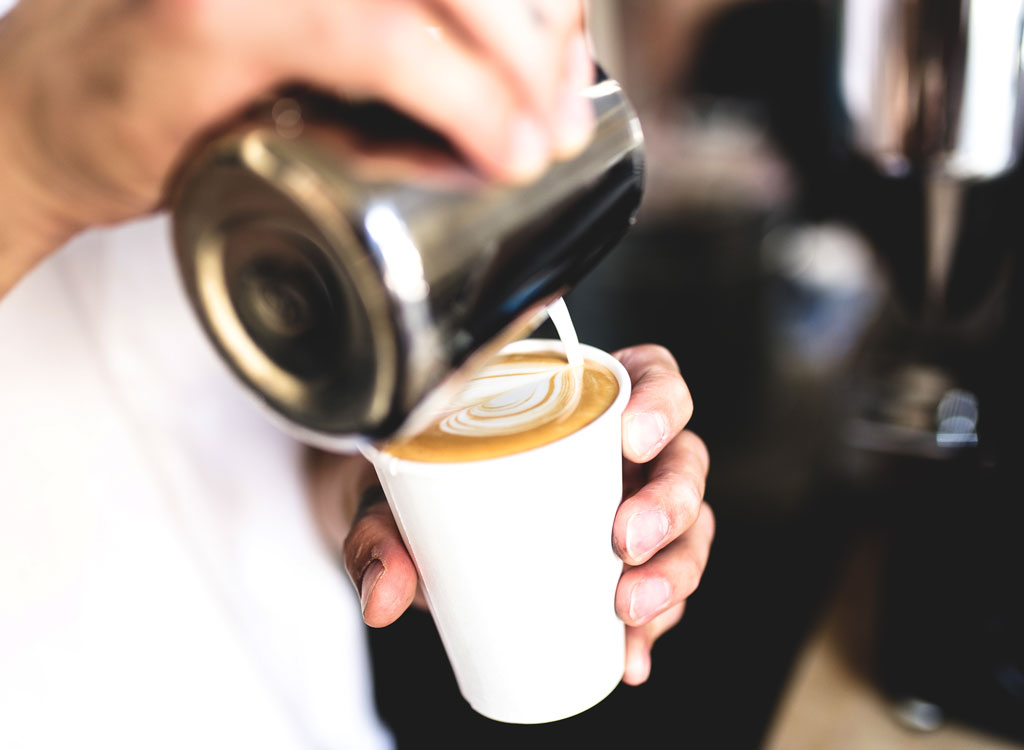
A splash of heavy cream goes a long way, but if you’re pouring a half cup’s worth of the milky stuff, you may be adding more calories than intended. Stick to a humble splash of 2 percent or whole milk to curb calories. And if you’re lactose intolerant or staying away from dairy, watch out for the milk alternatives you choose. Many plant-based options are jam-packed with added sugars and unnecessary emulsifiers. We especially like Silk Almond & Cashew Protein Nutmilk, which is uber indulgent and contains 50 percent more calcium than dairy milk.
You’re turning it into a dessert.
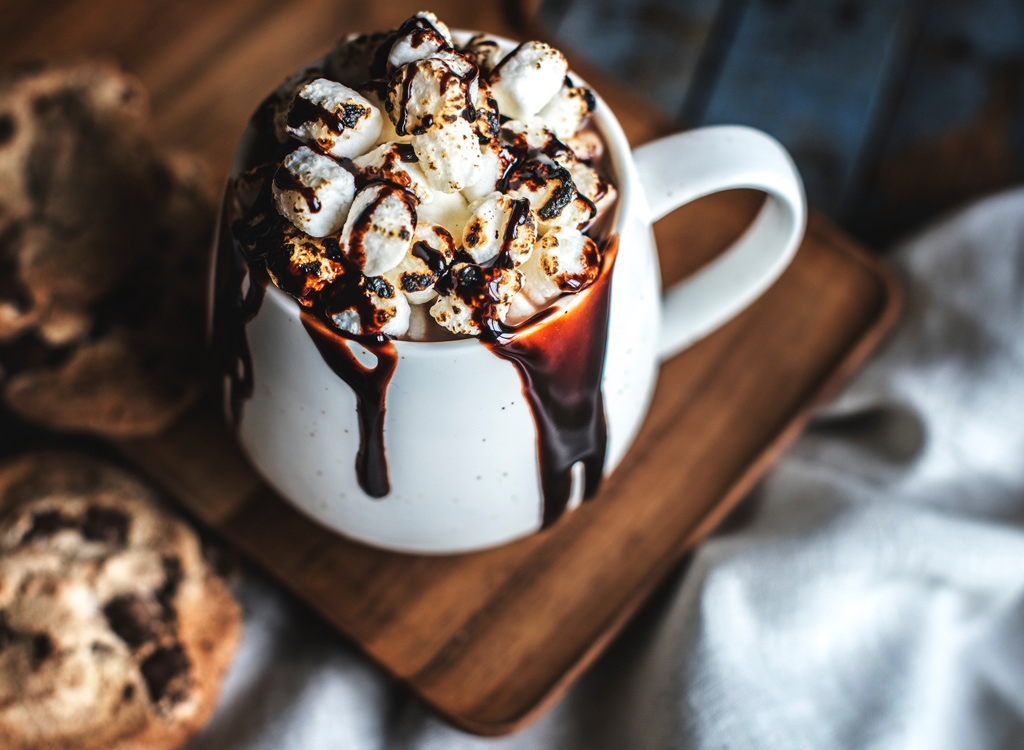
While there are a lot of coffee drinks you can order that are loaded with sugar, prepping your cup at home doesn’t mean you’re in the clear. Toppings such as caramel, chocolate syrups, and marshmallows are a hard no-go.
Opting for flavored creamers at home? Many are jam-packed with multiple sources of sugar, which hike up the calorie count and expand your beltline. What’s more, these liquid saboteurs contain artificial flavors and colors as well as inflammatory soybean oil and kidney-harming phosphates. Ditch the pseudo-dessert-like flavors and opt for a wholesome add-in such as Califia Farms Better Half Coffee Creamer or try Good Karma’s Vanilla Flaxmilk, which boasts the benefit of brain-nourishing omega-3s.
You’re using powdered creamer.
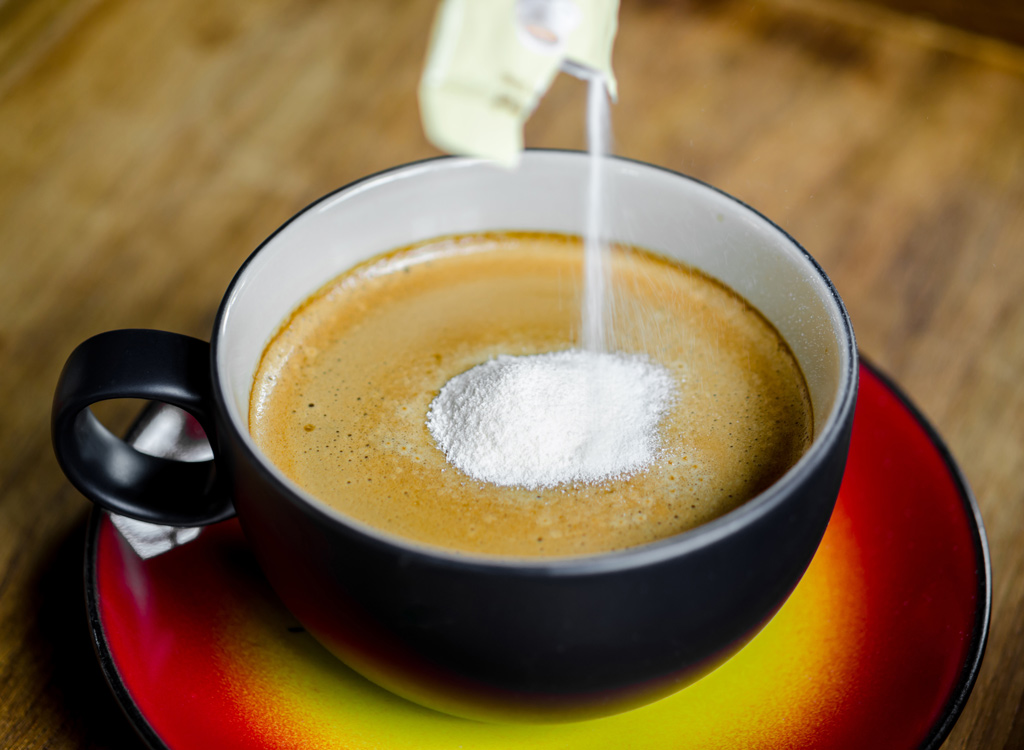
The powdered stuff isn’t any better than its liquid counterpart. Take Coffee-Mate’s original powder: The stuff contains sketchy ingredients such as sodium aluminosilicate, an anti-caking agent that’s also found in detergent and has been linked to skin, eye, and respiratory irritations. You’ll also find hydrogenated vegetable oil, which adds to the heart-harming saturated fat content, lurking in the ingredient list.
You buy into seasonal trends.
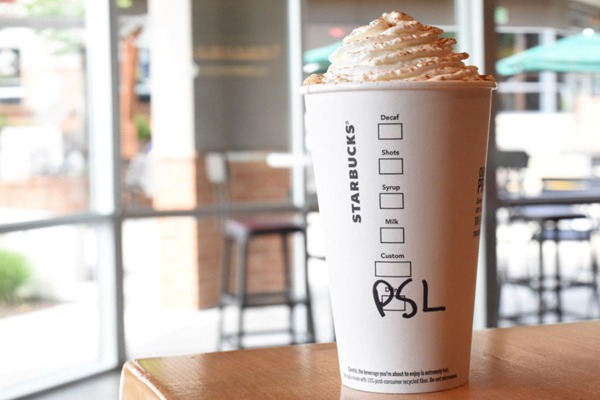
Skip the PSL and step away from the gingerbread-flavored creamer. No matter how tempting these seasonal offerings may be, they can easily be blamed for holiday weight gain. A Grande Pumpkin Spice Latte at Starbucks with two-percent milk and whipped cream has an unbelievable 380 calories and 50 grams of sugar. Even if you opt for making your own at home with Coffee-Mate’s Peppermint Mocha creamer, you’ll add 35 calories and 5 grams of sugar for every tablespoon you pour in. Here’s What Happens To Your Body When You Drink a Pumpkin Spice Latte.
You top it with whipped cream.
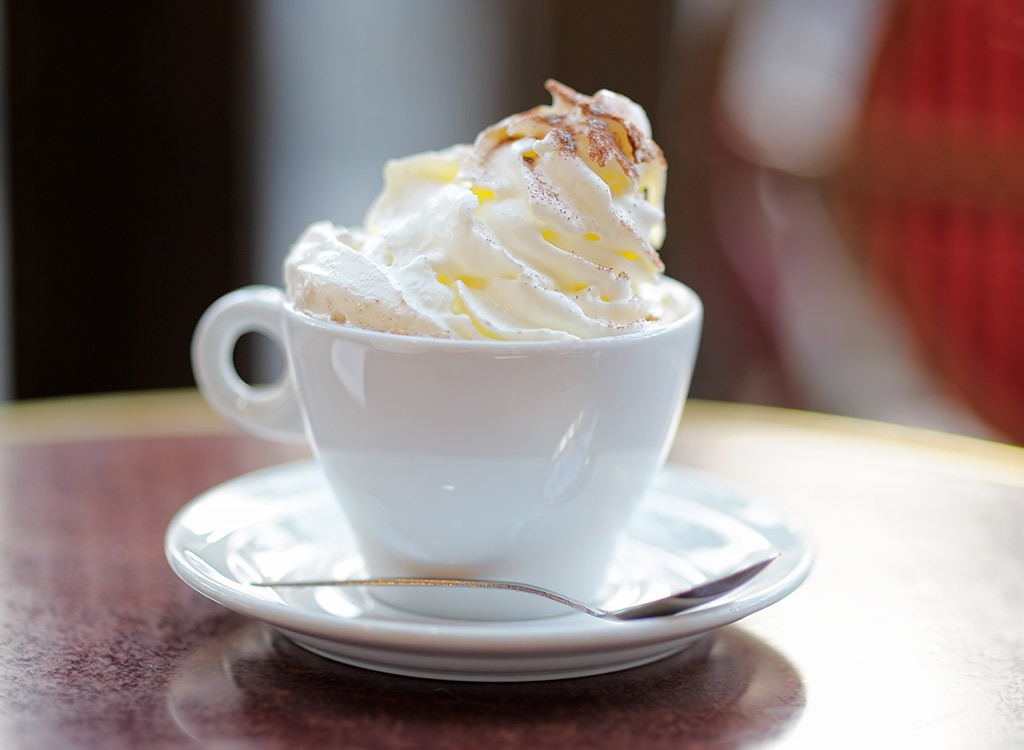
Whipped cream may taste light and airy but it’s anything but. Topping your latte with the indulgent add-on can lend your order upwards of 50 calories. Thinking Cool Whip is the better alternative? These whipped toppings don’t use real cream as the primary ingredient, which is why FDA regulations don’t allow them to be labeled “whipped cream.” What does this mean for you? Your java gets a heavy dose of partially hydrogenated vegetable oil and high fructose corn syrup.
You pair it with a muffin.
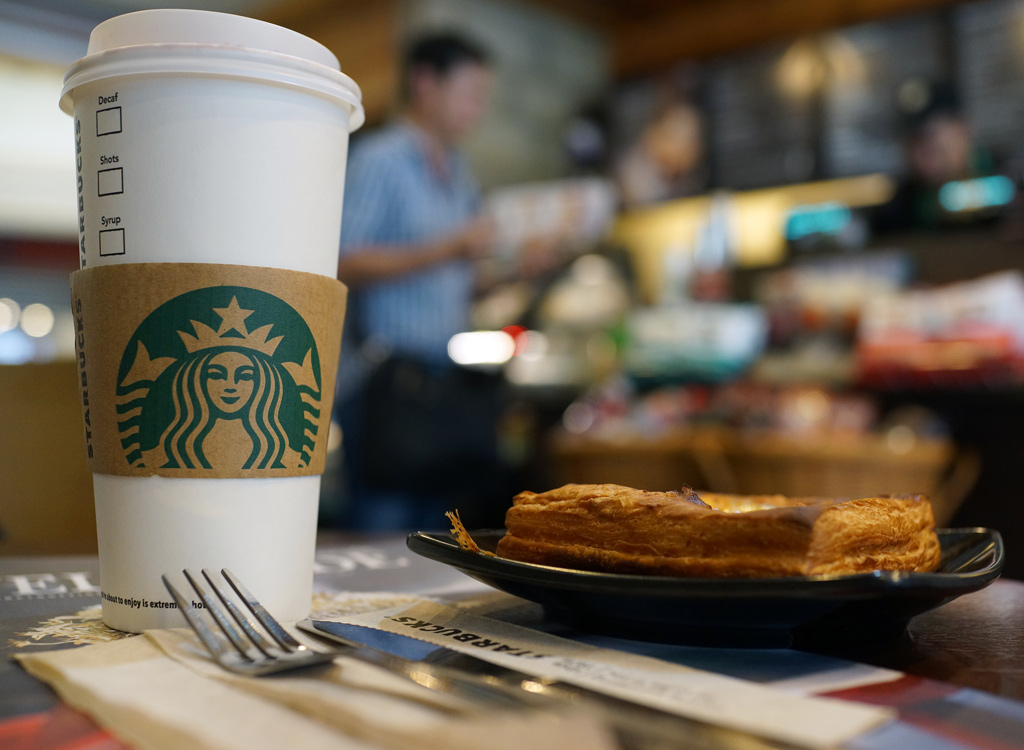
If you hold the whip, why wouldn’t you say no to the scone? It’s no secret that coffee shop pastries are loaded with saturated fat, sugar, and empty carbs—a triple threat that will bust your buttons. Leave the muffins, croissants, cake pops, and banana bread on the shelf and opt for a more wholesome breakfast such as low-sugar oatmeal or an egg sandwich. Or one of these 15 Healthy Hot Breakfast Items at Starbucks.
You order the Venti.
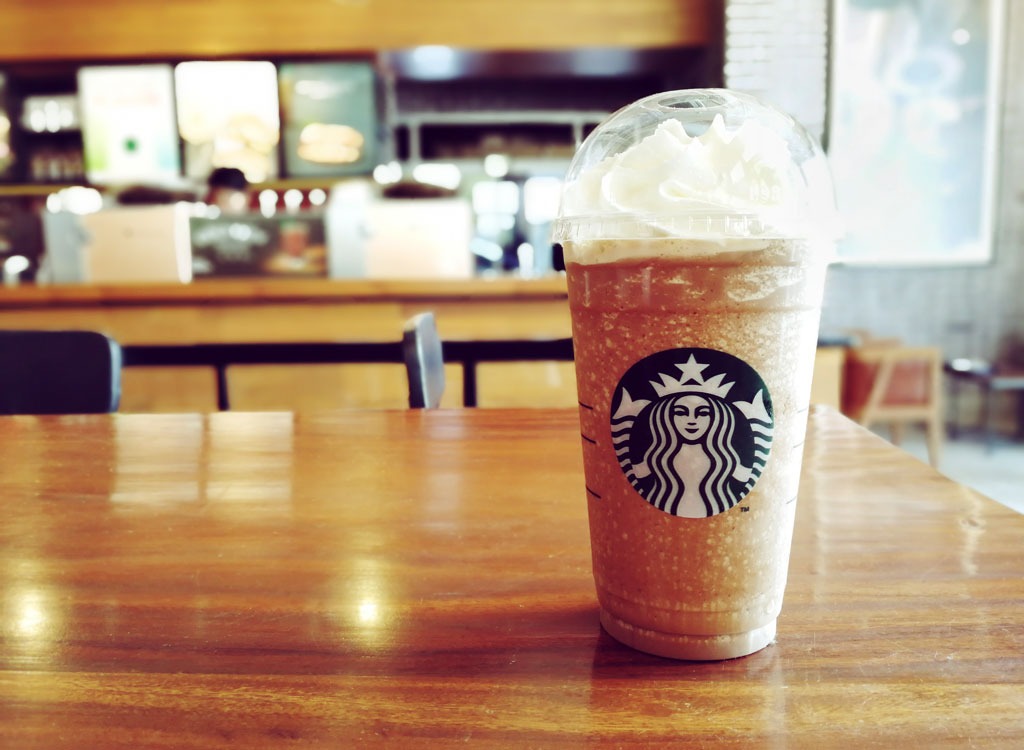
The upper daily caffeine limit is 400 milligrams—and you can easily surpass that quota if you usually go for a Venti at Sbux. A Venti-sized Blonde Roast packs in a whopping 475 milligrams of the energizing stuff. And, in this case, too much of a good thing isn’t so good: Excess caffeine has been shown to cause insomnia, headaches, dizziness, rapid or abnormal heart rhythm, dehydration, and anxiety.
You take your sweet time.

We’ve all done this before: You brewed a big batch of coffee, poured yourself a cup or two, and then left the rest on your kitchen counter. Hours later, you come to find that the java is way more bitter and acidic than when you first sipped it. It’s not in your head—leaving coffee exposed to air can cause its flavors and aromas to go stale. Coffee grounds are full of solubles (oils, acids, and molecules) that oxidize and make coffee taste sour the longer they come in contact with air. And the more you expose the beans to hot water (i.e. reheating your mug), the more oxidation that occurs. Stick to finishing your cup within a 20-minute time frame and brew small batches at a time.
For more healthy eating tips, be sure to sign up for our newsletter.
You add too many tablespoons of ground coffee.
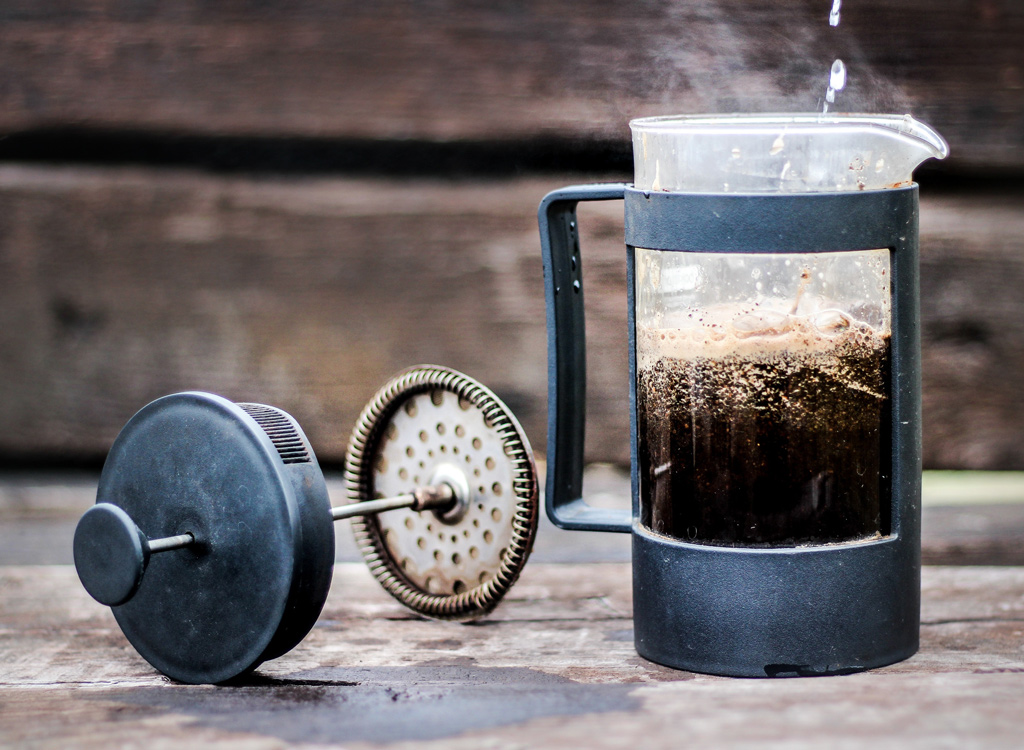
You bust out your French press and try your hand at the new bag of Arabica you just picked up at the farmer’s market. But when it’s brewed and you pour yourself a mug, you come to realize that it’s bland. Let’s face it, nothing’s worse than a weak cup of coffee. But how is one to know the correct water-to-coffee ratio without multiple rounds of trial and error? The Golden Ratio, according to the National Coffee Association, is one to two tablespoons of ground coffee for every six ounces of water. Next time you brew, start out with this guideline and then adjust according to your taste preferences.
You still opt for bottled.
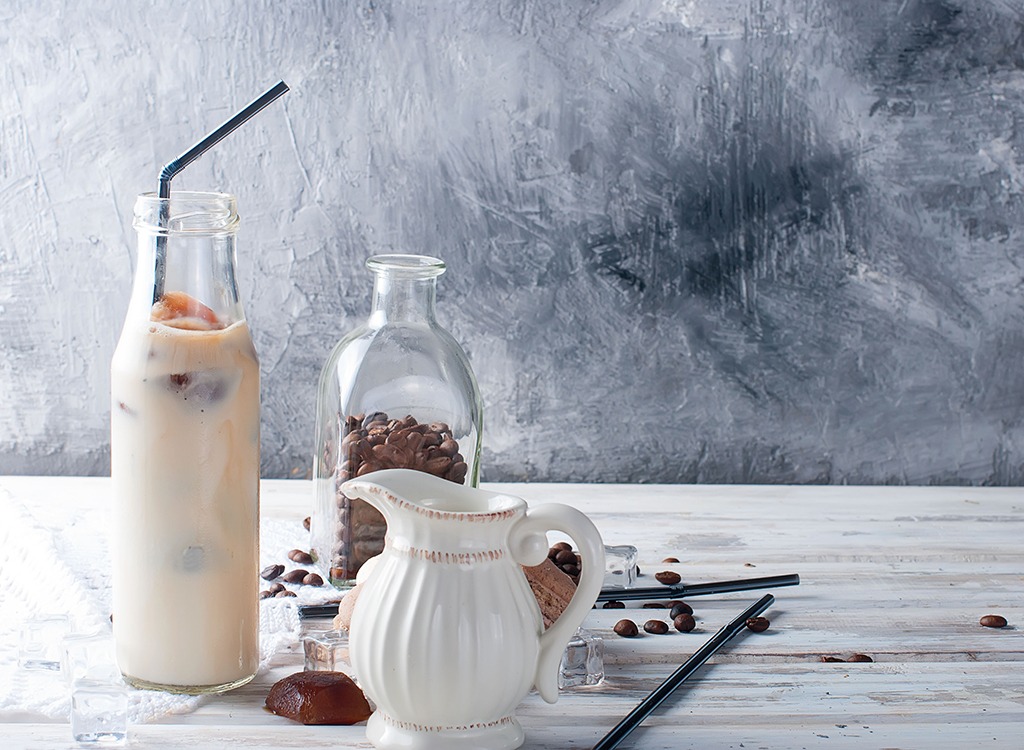
Making your own coffee doesn’t require much: All you need is some good beans, a French press, and about five minutes. Many ready-to-drink coffees hide tons of sugar and artificial flavors in their bottles, lending you a high-calorie brew. If you’re going for the store-bought stuff, pick a bottle that packs in 5 grams of sugar or less, or better yet, go black.
